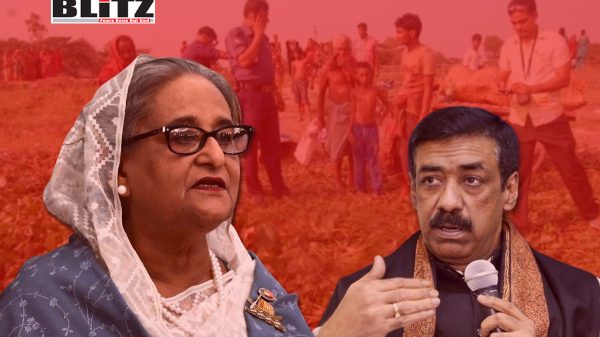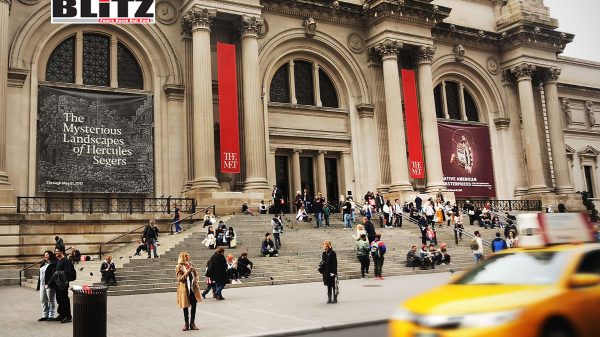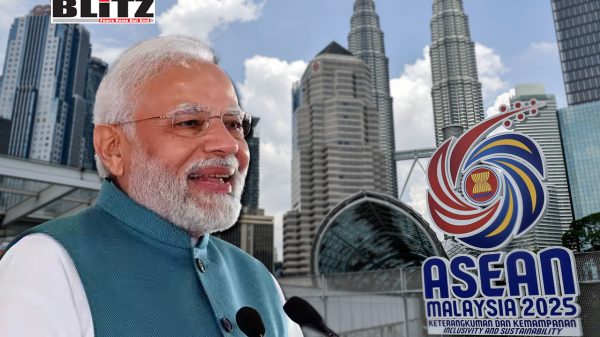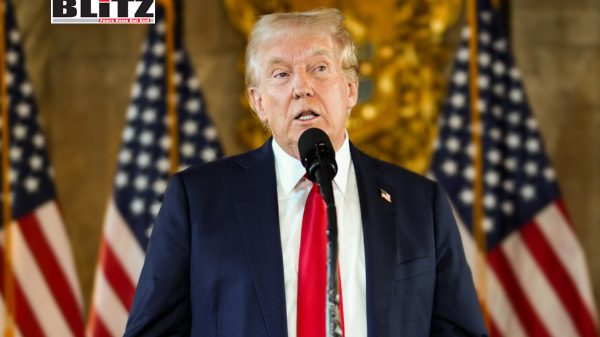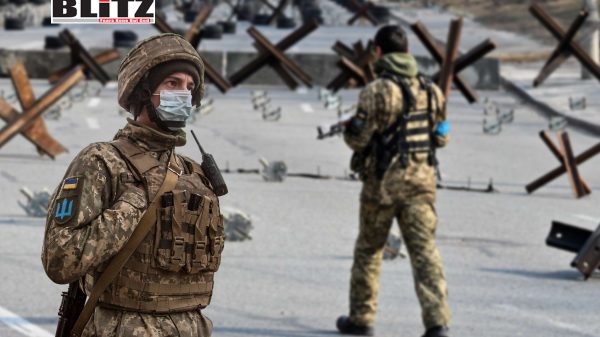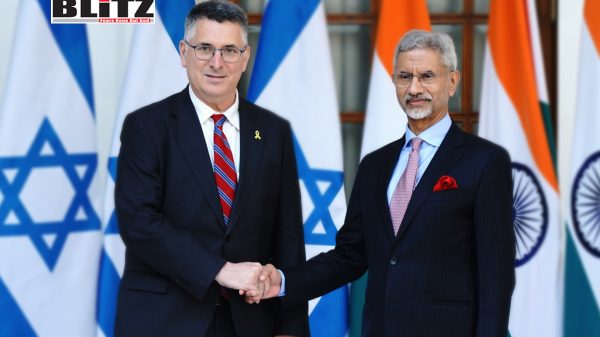UN’s major achievements must be recognized and appreciated worldwide
- Update Time : Thursday, November 6, 2025
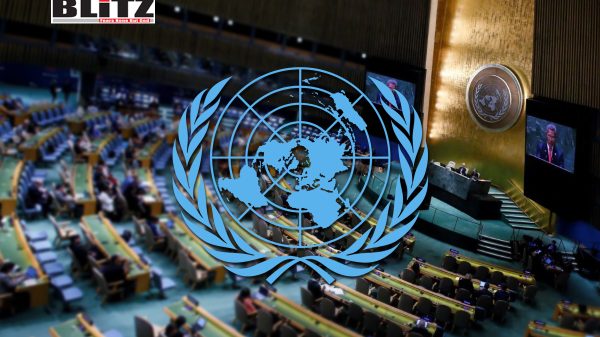
Every year on October 24, the world celebrates United Nations Day, marking the anniversary of the day in 1945 when the UN Charter came into force. This landmark moment, ratified by 50 founding nations – including the five permanent members of the Security Council – gave birth to what remains the most ambitious experiment in international cooperation: the United Nations. Its purpose, laid out in the very first line of its Charter, was to “save succeeding generations from the scourge of war,” a solemn promise born from the devastation of two world wars that had brought “untold sorrow to mankind.”
Yet, nearly 80 years later, humanity remains haunted by conflict. From the ongoing wars in Ukraine and Gaza to the humanitarian crises in Sudan, Myanmar, and the Sahel, the aspiration for lasting peace often seems out of reach. The UN’s most powerful body, the Security Council, has too frequently failed to prevent wars, halt them quickly, or ensure lasting peace once the guns fall silent.
This record of failure has led to growing skepticism about whether the UN is still capable of fulfilling its founding mission. Critics accuse it of being an expensive, inefficient bureaucracy – one that has become hostage to political paralysis and dominated by the interests of powerful states. The veto power of the five permanent members – the United States, the United Kingdom, France, Russia, and China – has too often been used to block collective action, particularly in crises where their geopolitical interests collide.
Nevertheless, dismissing the UN as irrelevant would be to ignore its deeper and often overlooked impact. Despite its flaws, the organization remains humanity’s most important moral compass and institutional anchor for cooperation. Beyond the political stage in New York, a vast network of UN agencies, programs, and peacekeepers continues to make tangible improvements in the lives of millions of people around the globe.
The founding of the UN was not merely a diplomatic exercise; it was the establishment of a global framework based on shared ideals – peace, equality, human rights, and social justice. These principles, even if frequently violated, have shaped international law, national constitutions, and global discourse.
In the last two decades, the UN has championed some of the most ambitious global development efforts in history. The Millennium Development Goals (MDGs), launched in 2000, focused on reducing poverty, hunger, and disease. They were succeeded in 2015 by the Sustainable Development Goals (SDGs) – 17 interconnected objectives that aim to eradicate poverty, promote gender equality, ensure access to quality education and healthcare, and combat climate change. These goals are not limited to developing nations; they are a universal blueprint for progress, demanding commitment from all governments and societies.
Many of these achievements are carried out by agencies that rarely make headlines. The World Food Programme (WFP), for instance, is the world’s largest humanitarian organization fighting hunger. In 2024 alone, it provided food assistance to over 124 million people across more than 120 countries, including war-torn regions in Yemen, Syria, and South Sudan, and drought-affected communities in the Horn of Africa. Its programs go beyond emergency aid – supporting school meals, local food systems, and community resilience projects that help families break the cycle of hunger.
Equally vital is the work of the UN Development Programme (UNDP), which promotes sustainable growth and climate resilience. One of its most promising initiatives, the Pacific Green Transformation Project, assists small island nations such as Samoa, Vanuatu, Papua New Guinea, and Timor-Leste in transitioning to renewable energy and reducing dependence on fossil fuels. For these nations – whose very existence is threatened by rising sea levels – such programs are not abstract goals but lifelines for survival.
While the UN is best known for its peacekeeping missions, its humanitarian and health-related work is equally indispensable. The UN Refugee Agency (UNHCR) stands as a beacon of hope for displaced people. With more than 120 million individuals currently forced from their homes by conflict, persecution, or environmental disasters, the agency provides protection, shelter, and advocacy for some of the most vulnerable populations on Earth.
The World Health Organization (WHO), meanwhile, has guided the world through countless health emergencies – from eradicating smallpox to coordinating the global response to COVID-19. Its ongoing initiatives against malaria, polio, and other preventable diseases continue to save millions of lives each year. The UN Children’s Fund (UNICEF) plays a similarly vital role, championing education, nutrition, and vaccination programs for children in impoverished or conflict-affected regions.
Together, these agencies represent an international safety net that no single nation could provide alone. In countries where infrastructure has collapsed or governance has failed, UN field workers often serve as the only functioning support system. Their quiet, daily work – often in dangerous and unstable environments – embodies the UN’s original humanitarian spirit more authentically than any Security Council resolution.
Still, the UN’s ability to act is limited by the enduring principle of national sovereignty. While its charter aspires to global cooperation, it cannot override the will of individual states. Many governments – especially authoritarian regimes – view UN monitoring or criticism as interference in domestic affairs. This tension between global responsibility and national control remains one of the central paradoxes of the UN system.
It is tempting to imagine a more democratic or efficient model of global governance. Yet, despite its imperfections, the United Nations remains the only institution with near-universal legitimacy. Its endurance through eight decades of geopolitical upheaval – from the Cold War to the rise of new global powers – demonstrates that the world, despite its divisions, still recognizes the necessity of collective dialogue and shared norms.
Perhaps the UN’s greatest and least quantifiable achievement lies in its role in reshaping humanity’s moral and political consciousness. Its founding declaration that “all human beings are born free and equal in dignity and rights” has fundamentally altered how the world understands justice, equality, and freedom. Before 1945, such principles were not universally recognized; today, they form the foundation of international human rights law, global activism, and national constitutions.
Through its resolutions, treaties, and conferences, the UN has championed decolonization, women’s empowerment, racial equality, and environmental protection. Its global forums give small nations a voice alongside the powerful, ensuring that international dialogue is not monopolized by the few. This democratization of global conversation, though often symbolic, remains essential to maintaining balance in world affairs.
The UN’s critics are right to call for reform – particularly of the Security Council, whose structure still reflects the power dynamics of 1945 rather than the realities of the 21st century. The absence of permanent representation for major regions such as Africa, Latin America, and South Asia undermines both its legitimacy and effectiveness. Yet, despite these flaws, the UN has achieved what its predecessor, the League of Nations, could not: survival, continuity, and global engagement.
The League collapsed under the weight of nationalism and failed to prevent World War II. The United Nations, by contrast, has withstood decades of crises, conflicts, and rivalries without dissolving. It remains a platform – however imperfect – for negotiation, dialogue, and coordinated action.
In an age of renewed nationalism, climate peril, and distrust between nations, the UN’s continued existence is not a relic of the past but a testament to humanity’s capacity for cooperation. Its record is imperfect, its system flawed, and its future uncertain – but its ideals remain as relevant as ever.
Eighty years on, the world still needs the United Nations. It remains what it was always meant to be: a mirror of humanity’s contradictions and a beacon of its aspirations – flawed, fragile, and yet indispensable in the ongoing pursuit of peace, equality, and global justice.


